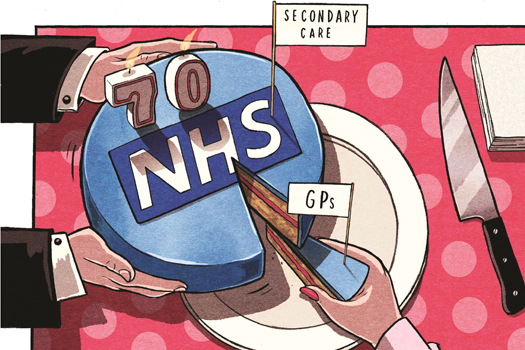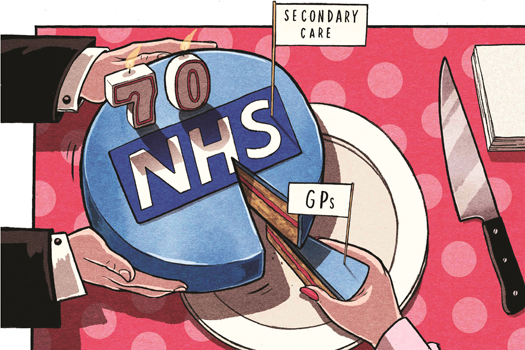
birthday cover image
When Aneurin Bevan launched the NHS on 5 July 1948, he had a budget of £437m.
In today’s money, that’s around £15bn, and less than one-tenth of what the Government set aside to spend on healthcare in England in 2015-16.
An ever-growing population living longer – but unhealthier – lives with chronic diseases has placed demand on that revolutionary healthcare system in a way that Mr Bevan could probably have never imagined.
So, to mark the NHS turning 70 earlier this year, Prime Minister Theresa May announced a welcome birthday present – in the shape of the promise of a £20.5 billion real-terms annual funding uplift by 2023.
There was, however, an air of scepticism from some factions about how much of a difference the extra cash would actually make – particularly GPs, who do the bulk of the health service’s work for a mere morsel of the money.
If NHS England’s plans to increase GPs’ share to 10% by 2020-21 are to come to fruition, there is work to do.
NHS England officials claim they will get there through a series of funding streams in addition to money for the core GP contract – such as through investment in GP training allocated to Health Education England and public health money for local councils.
But Pulse crunched the numbers for the core GP contract in February and found that, so far, GPs are in fact seeing a smaller proportion – not a larger one – of the total NHS England budget.
The proportion of funding allocated to core GP services fell from 7.31% to 7.13% in the three years from 2015-16 to 2018-19.
An analysis of commissioners’ data by Pulse also found CCG spending on GP practices has plateaued, although there seems to be a will for that to change.
More than three-quarters of CCG finance leaders polled by the King’s Fund over the summer said that, if they were to get more money, GPs would be at the front of the queue when they dish it back out.
However, questions remain over Ms May’s birthday gift.
First, the budget boost equates to an annual rise of 3.4%. This compares unfavourably with the 3.7% average over the NHS’s 70-year history, and the 4% increase needed to bring health and social care up to scratch, according to an Institute of Fiscal Studies report published in May.
Second, where will the money come from?
If the extra £350m a week Britain has been sending to the European Union fails to magically appear when we eventually leave, it will be taxpayers who foot the bill.
The promise of more money does, however, reflect a shift in government policy and a recognition that the NHS cannot continue to do more with less.
And while GPs’ overall share of NHS funding may not be set to increase, the amount they get in absolute terms is.
That’s by no means a silver bullet to solve all of the NHS’s problems, but it’s a good place to start.
Pulse October survey
Take our July 2025 survey to potentially win £1.000 worth of tokens













